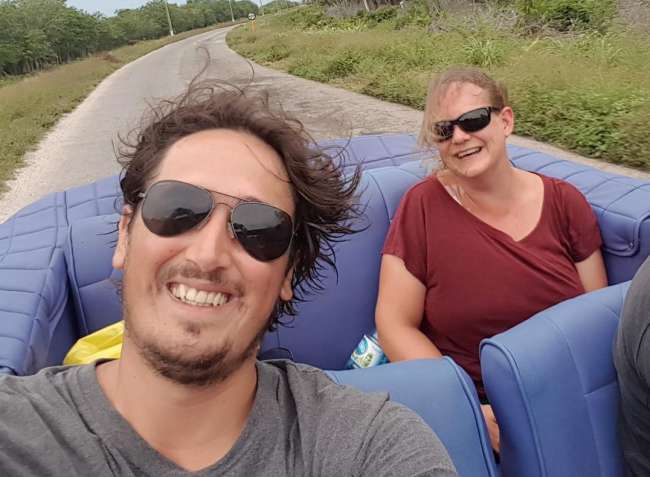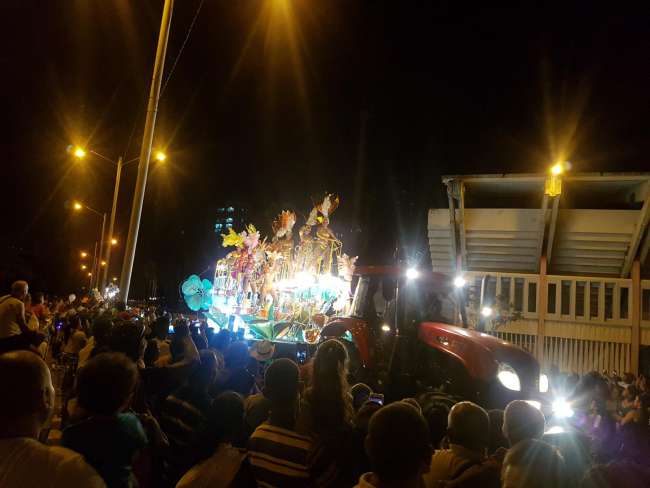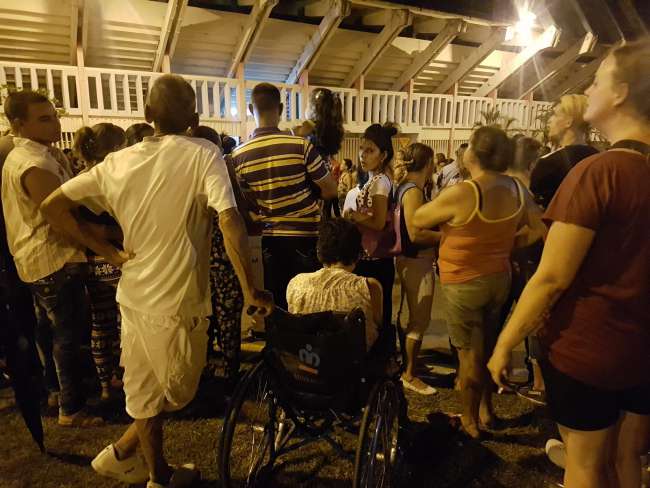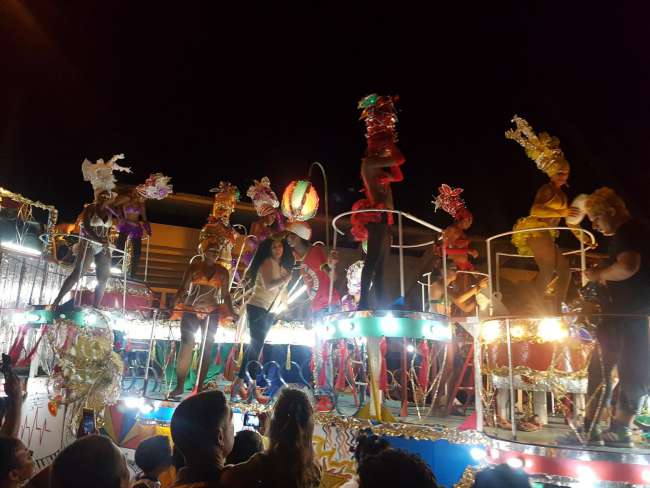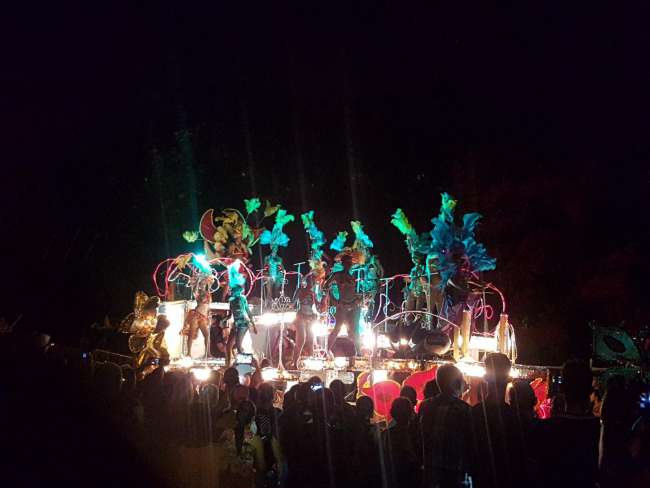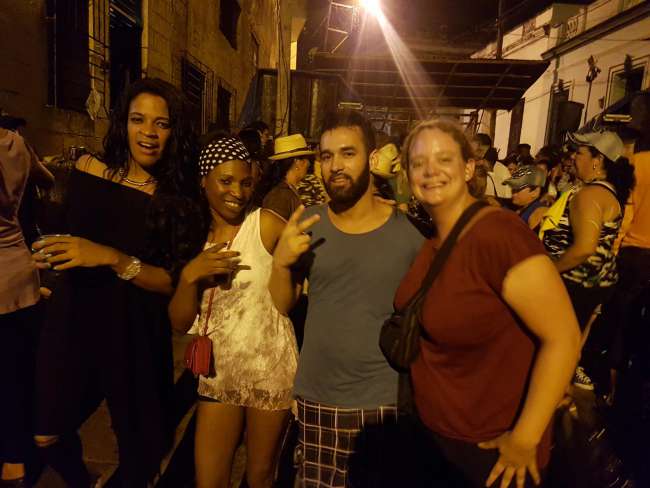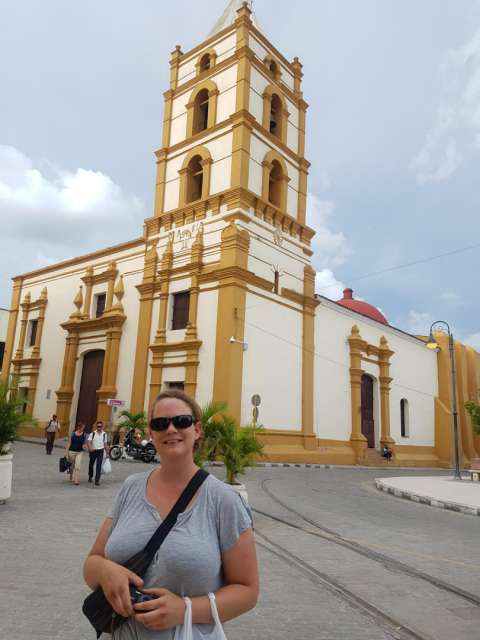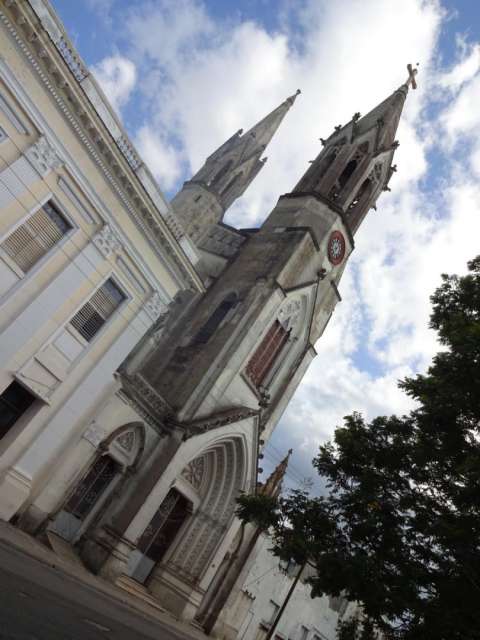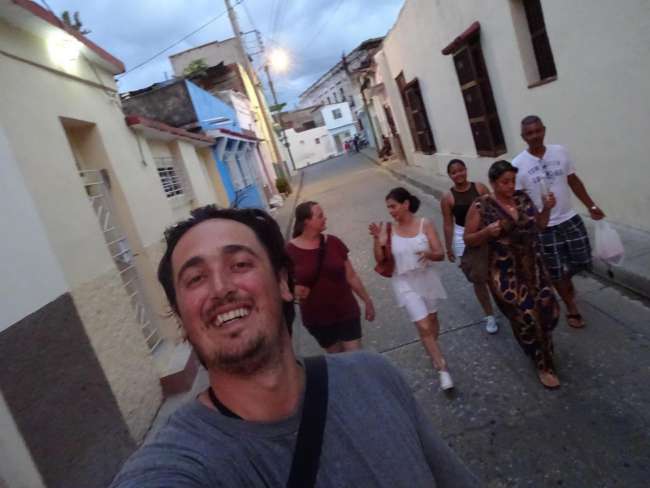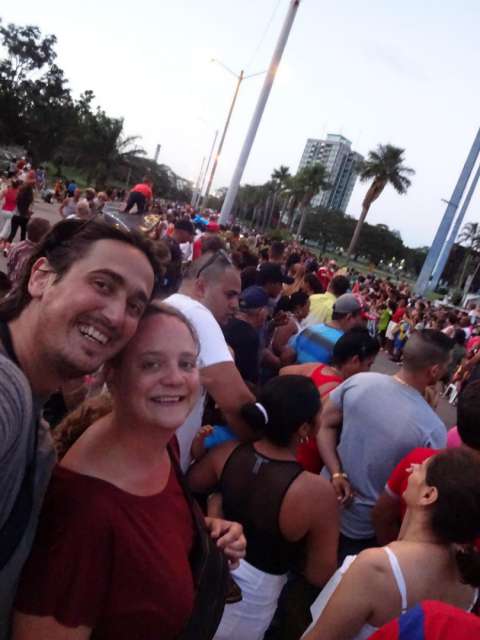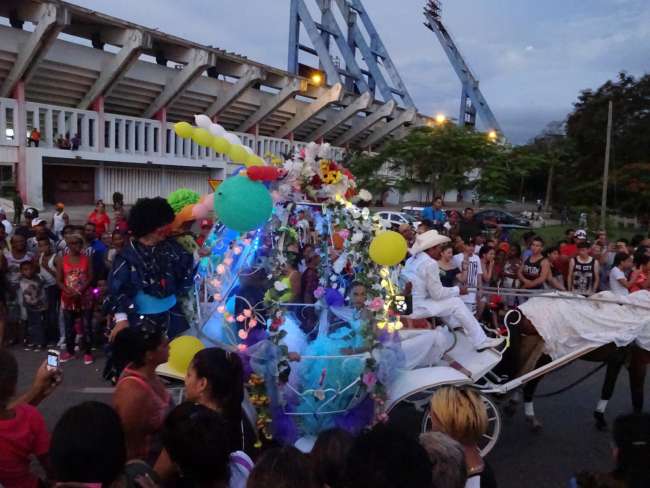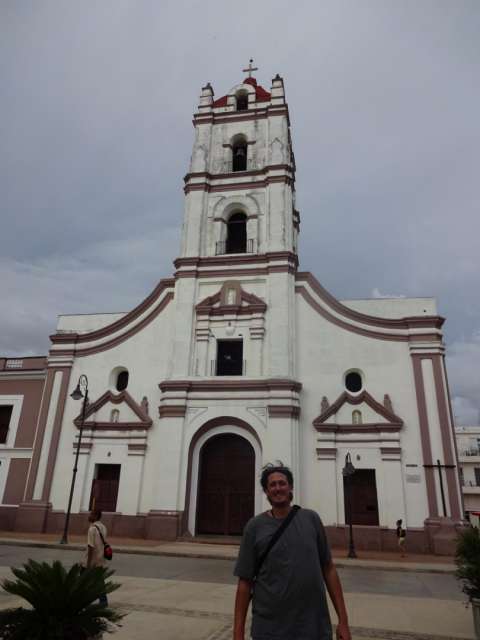Cuba: Camagüey
ተሓቲሙ: 17.07.2017
ንዜና ሳብስክራይብ ግበሩ
From Trinidad, we traveled by bus for 7 hours to Camagüey. From the bus station, we took a bicycle rickshaw to a Casa. The driver was a nice young guy, but he was a bit overwhelmed by the weight of about 230 kg (Jörg + me + luggage) in the scorching heat going uphill. So Jörg helped the driver push the bike uphill, while I sat on top with the luggage, feeling a bit guilty. The recommended Casa we were headed to was occupied, so the owner recommended another Casa instead and took a commission for himself, sitting and doing nothing. It's hard to see that the only person working hard, the young rickshaw driver, ultimately ended up with nothing. We ended up giving him a bigger tip than originally agreed.
We went to Camagüey mainly because there was a carnival going on at the time and we didn't want to miss it. It turned out to be a good idea. Our host family had a visit from a sister who lives in Germany, and they took us to the carnival parade. They had tons of food and rum bottles with them, which they kindly offered to us. We were surprised when they said after about an hour that they had seen enough and were going home. We said goodbye and stayed to watch the rest of the parade.
In front of us in the crowd, there was a large family. When I stood behind them, they immediately offered me the front row seat. It was friendly, but I declined because I didn't want to cut in line just because I have blue eyes and obviously don't come from here. But what really bothered us about the whole situation was that the old grandmother of this family was sitting in a wheelchair at the very back and couldn't see anything. Why did they offer me the front row seat without hesitation, but the grandmother in the wheelchair, who wouldn't have bothered anyone if she was at the front, was sitting in the last row? I eventually asked the family why they didn't move the old lady to the front, as everyone could still see over her. I didn't understand the answer, but it couldn't have been a good one. They also seemed to be laughing at me, I don't know what was so funny. Eventually, they started lifting the poor old lady up by her arms when a float passed by. The whole thing really touched and moved me. How can people in a socialist country be so selfish? When Jörg took a photo of the situation, it became clear that we didn't think it was cool at all, and the young men moved aside and let the grandmother go in front. One can wonder what made the difference. If other Cubans had complained about the situation, would they have reacted as well? Or was it just because we were foreigners? And if so, why? After all, they couldn't expect anything from us (money or anything). Maybe because we took a photo? Jörg and I continued walking. This is Cuba…
Anyway, we had a very lively evening. After the parade, we stumbled upon a party crowd where we were obviously the only tourists. Everyone stared at us. A group of Cubans approached us; they wanted to practice their English, which was basically non-existent. We somehow managed to communicate with them in a mix of English and Spanish. The woman kept repeating that her son lives in the United States, and she was very proud of him. Her husband told me that one of his sisters lives in Argentina, also very proud. I asked if he had any other siblings. He said yes, 2, but they had no contact because they were Communists. I asked if he was a Communist. No, he was a Capitalist. When you have the chance to talk to a drunk Cuban who is not afraid to speak his mind, you should take it. So I asked him: Am I not Fidel forever? I didn't understand everything in his response, it was a torrent of words, but apparently it meant Fidel is dead.
The man also told me that he was a mechanical engineer. When I asked where he worked, he said he didn't work, it wasn't worth working as an engineer because you don't earn anything. He and his wife had a Casa Particular, and that was more profitable. It's worth noting that the housewives in Rancho Luna told us that they earn 1 CUC per day (= 1 USD). Various people we met along the way told us that the average salary in Cuba is about 25 CUC (= 25 USD) per month. A good doctor earns about 45 CUC, you can only work for the state, there are no private practices. We paid between 15 and 25 CUC per night for a room in a Casa Particular. So you can calculate that renting out a room in your house for 3 nights already earns you more than being a doctor after years of study. Completely absurd.
Regarding Casa Particular, we must note that the offered rooms are all very nice, clean, and well-equipped. A refrigerator, air conditioning, and a private bathroom are standard (as far as we read, these standards are set and verified by the state). So you really can't complain about the price. To go back to my conversation partner: We never saw a man working in a Casa Particular. The male homeowners usually sit in a rocking chair while the women do all the work. Unless they have employees, then the woman also sits in a rocking chair. Apparently, life is not bad being a mechanical engineer with your own Casa (and wife, of course).
Speaking of money, the whole discussion becomes absurd when you realize that as a tourist, you usually pay 1 CUC for a 0.5-liter bottle of water. It's comparable to Swiss prices. But you should know that Cuba has two currencies. The regular currency called Pesos, or Moneda Nacional, is used by ordinary Cubans. For tourists, there is the second currency, Convertible Pesos or CUC. The exchange rate is 1 CUC = 25 Pesos. In many museums, Cubans pay the same in Moneda Nacional as tourists pay in CUC, so 25 times less. That's fine if you assume that they earn only 25 CUC per month. However, that's apparently not always the case. We asked a group of people at the carnival how much they pay for a beer at the event, and they said it's also 1 CUC, same as us. Cubans who somehow work with tourists and therefore have the chance to get CUC directly are better off compared to those who earn their salary in regular Pesos because they can apparently only afford 25 beers at the carnival with their monthly salary, and then it's gone. In our eyes, it's clearly a two-tier society, which was supposed to be fought by Fidel's revolution. I would say it missed its mark.
Anyway, the terrible day eventually had a good ending. When we were feeling down on our way back to the Casa, we met a young Cuban guy and his two colleagues, whom we had briefly chatted with the day before. They spontaneously took us to the carnival, where we ended up at a party for homosexuals. Again, we were the only tourists there. After that day, we were definitely in a drinking mood. We had a very lively evening, danced a lot, and laughed. Our companions took good care of us and were very friendly, and we eventually stumbled back to the Casa completely drunk.
We didn't see much of Camagüey itself. Nevertheless, it turned out to be the place we liked the most. We had a good time with the locals at the carnival and learned a lot about their lives. It was really worth it. The next day, we slept off our hangover and then took the overnight bus to Santiago de Cuba.
ንዜና ሳብስክራይብ ግበሩ
መልሲ (1)
Manuela
Zwei Klassen Gesellschaft pur! 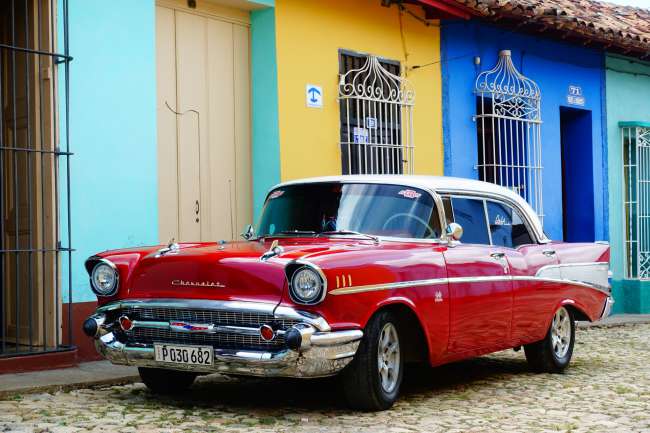
ጸብጻባት ጉዕዞ ኩባ

